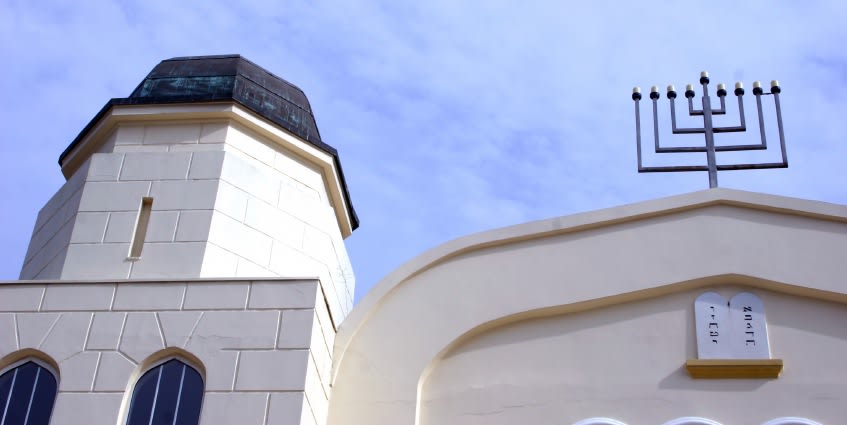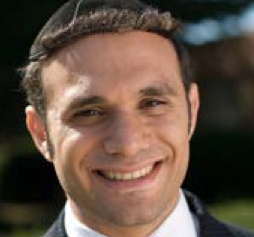This article first appeared in the Los Angeles Jewish Home Newspaper’s July 4th edtion.
Recently, well known religion journalist, Lisa Miller, wrote a piece in the Washington Post called “young Jews rebelling against pay- ing dues.” Her article touched on a phenomenon where she describes growing resentment among what she refers to as “the millennial generation” to the money culture of synagogue life.
Miller speculates that this rebellion is brought on because of the the financial demands made of them by a shul throughout the course of a year. She also points out that many young jews are wondering if they are in fact their getting their money’s worth.
In a certain sense, this issue is indicative of the consumerist attitude that our society has taken to and a historical approach offers an additional prism with which to view this dilemma.
If we turn back to Parshat B’shalach, Pharaoh sends the Jewish People out of slavery in Egypt. Hashem is then forced to make a very difficult decision.
Hashem did not let them go by way of the land of Plishtim because he feared that if the people see war they will “נחם” and return to Egypt.
The word ינחם in this context seems a little bit out of place. Usually we would translate נחמה as consolation, but what or who exactly is being consoled here?
There are many different approaches on how to read this verse, but one approach that resonated with me was the fact that Nechama does not literally mean consolation here. Here, she actually means a change in perspective. When you come to console someone who has suffered a loss, you are trying to help them change their perspective from the depths of their grief to how they can continue to grow through the experience.
The Pasuk says that Hashem made sure that the first thing that the Jewish people would see on their way out of Egypt would not be a war with the Plishtim for it might change their perspective from the high in which they found themselves, right back into the pit of despondency that characterized their time in Egypt -פן ינחם העם.
There is yet another pasuk that follows this one that tells us that וחמושים עלו מארץ מצרים –the Jewish people left חמושים.
Rashi offers multiple translations, but one of them is that it comes from the word חמש, referring to the 1/5th of the nation perished during the plague of darkness because they could not be part of the Jewish people.
R’ Yosef Salant in his Book Be’er Yosef elaborates that this may be true of the adults, but how could it be that the children of those Jews were punished? what could they have done wrong? He goes on to explain that the remaining fifth of the people who left Egypt took on the orphans from those who perished in Egypt. In other words, each family left with their own children plus they orphaned children from four other families. Therefore, we find that each couple left with “five children,” meaning five families’ worth of children.
These two ideas create a fascinating synergy. The first is that we find that Hashem was so careful to preserve the perspective that the Jewish people had as they left Egypt. Hashem gerrymandered our route, so to speak, to ensure that we would not have that perspective change.
What was that perspective that was so crucial to uphold? It was the care and responsibility וחמושים that we took for one another which made us who we were and who we were destined to be. Hashem made sure to do everything he could to make sure that this perspective would not be lost.
To me, this idea is not only a beautiful exposition of the words of the Torah, but it hits at the very core of what it means to belong to the Jewish community. This Parsha describes the formative stages of our nation. According to this interpretation, our nation is based on the principle of interconnectedness and being there for one another.
Which leads us back to the article by Lisa Miller. Her article this week, (which by the way is in the theme of an article she wrote for Newsweek called “the cost of being Jewish.” An article that sports a very telling line about the generation that she is describing).
Their parents might have written the membership check without a second thought, but these folks don’t part with their money so easily. Not when there are so many other bills to pay. Not when Jewish identity has become as much about what you eat (or don’t eat) and who you marry (or don’t marry) as where you worship – or, in the old vernacular, “belong.”
What seems to emerge is that there is a growing trend of not having a need to belong, and the decisions about where one spends time, energy and money are more based on a measurable return on one’s spiritual investment.
While I do not argue that the phenomenon Ms. Miller describes is undoubtedly correct, I would argue vehemently, that this approach is antithetical to our history as a nation. At its core the question being asked is what does membership get you? what does it mean to belong and how can it justify my investment?
To offer an answer, I would point to a set of principles recently formulated by the executive director of a prominent Shul.
• Membership “gets you” responsibility and the opportunity to give.
• Membership gets you the opportunity to affirm that you believe in the importance and vitality of the Orthodox Jewish Community.
• Membership “gets you” the opportunity to get involved. It allows you to serve on a committee, organize an event, sponsor a kiddush for a simcha or a shalosh seudot for a yahrtzeit so that you can share these events with your community (aka your fellow members).
• Membership is taking ownership and responsibility for the future.
• Membership is celebrating a simcha in a space that you feel a deep-rooted connection to.
• Membership is getting an email or text to pay a shiva call or go to a funeral say tehilim for a sick or injured member.
And here is the key that I fear that many of the people described in the article do not understand:
• membership is the fundamental understanding that the opportunities presented above provide their own reward to the giver
That’s what it means to belong. That’s what it means to be part of Bnei Yisrael.
In my role as associate Rabbi in Beth Jacob and as associate director of the OU West Coast, my limited experience is that on the whole, we are winning this battle and the members of our communities truly “get it” when it comes to belonging. That being said, this is an uphill battle and there are many who do not see community this way. I fear that without a true understanding of “belonging” our community is in dire straits.
As we look for guidance, we return to Yetzias Mitzrayim and we remember the core principle that defined us then, I truly believe that defines us now, and we desperately hope will define us in the future. It is the core principle that was the mantra of every Jewish family that without hesitation took in a group of orphans as they left Egypt. It is this understanding that if we want to be part of a people and we want that people to have a future, we need to look to how we can give and ultimately, how we can belong.
Rabbi Adir Posy is the Associate Rabbi at Beth Jacob Congregation in Beverly Hills and is the Assistant Director of the OU West Coast Office.
The words of this author reflect his/her own opinions and do not necessarily represent the official position of the Orthodox Union.

